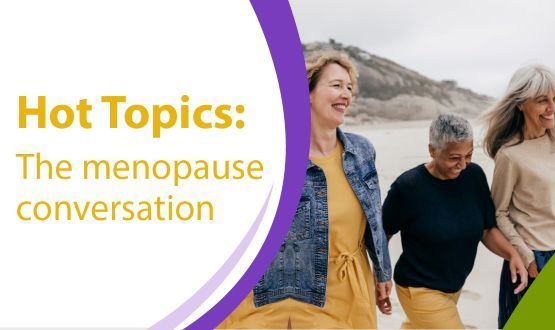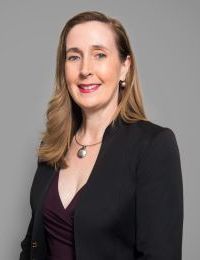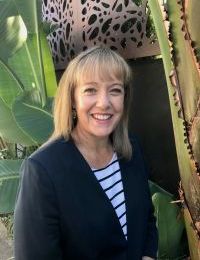
Menopause is not a singular hormonal event happening at once, it is a multisystem physiological shift that can occur over a decade or more, with significant implications for long-term health. This presentation offers a comprehensive, evidence-based exploration of the key systemic changes that occur during perimenopause and menopause, moving beyond vasomotor symptoms to uncover the deeper, often overlooked biological transformations. This presentation will review the neuroendocrine changes associated with perimenopause and their impact on cognitive function, mood, and sleep architecture. We will delve into the cardiovascular risks that emerge due to the hormonal changes of menopause. We will discuss the changes to the liver and gall bladder that influence estrogen detoxification, bile production, and metabolic load, and assess their implications for midlife liver health. This presentation is designed for physicians, nurse practitioners, physician assistants, and allied health professionals in primary care, OB/GYN, endocrinology, internal medicine, and all women's health practitioners.
Menopause and midlife women’s health have become increasingly prominent topics in global healthcare conversations, driven by a growing recognition of their impact on quality of life and an evolving therapeutic landscape. This presentation will provide an up-to-date overview of menopausal hormone therapy (MHT), including new treatment options and recent additions to the Pharmaceutical Benefits Scheme (PBS). An approach to the supply challenges affecting various MHT products will be outlined including alternatives and prescribing considerations.
The session will explore the role of MHT in symptom management, prevention of long-term health risks, and quality-of-life improvement, while also addressing emerging controversies and shifts in clinical guidelines around perimenopause and menopause care.
Menopause often begins asymptomatically and moves into a gradual irregularity of the menstrual cycle. This is referred to as the perimenopause phase which may present a range of symptoms which impact on quality of life. While menopause is inevitable for most women, navigating the prolonged period of transition which may impact a woman’s health is largely fragmented. This presentation reports on a study which explored Australian women’s knowledge and experience of perimenopause and menopause. Results highlighted that women can be unprepared for the severity of symptoms they can experience. Women’s knowledge of perimenopause and menopause is limited regardless of education level and that knowledge they had acquired was often not evidence based. Study participants identified that menopause was a taboo topic and highlighted fragmented and inconsistent support when accessing health services. Timely and relevant assessment and diagnosis of perimenopause and menopause is critical to ensuring women’s health and wellbeing.
Menopause symbolises the final menstrual period and typically occurs at the age of 51-52 in Australian females. During the menopausal transition, bothersome symptoms may occur in the perimenopausal period and may occur for 1-10 years. An individual choice of management, weighing up the risks and benefits as well as personal preference is encouraged. Confusion can arise in deciphering the myriad of information on complementary medicines from various sources including social media, the Wellness market. A review of the scientific, as well as traditional, evidence for the most commonly used complementary medicines for perimenopausal symptoms will be outlined, including relevant indications and contraindications. Safety of these medicines will be outlined, with consideration to co-prescribing with pharmaceuticals, as well as breast cancer safety. Practical advice on dietary and lifestyle recommendations to support the menopausal transition, will also be presented.
This presentation will explore menopause and mental and emotional health including across the different stages and ages that menopause might be experienced. Factors to be considered include anxiety, depression, body image, sexual function, relationships and identity for women who experience premature, early, peri- and average age menopause. Recent research along with strategies to support menopausal women will be discussed.
After this presentation, participants will be able to:
Female sexual dysfunction is common, with the main concern being lowered libido. This presentation will discuss how female sexual function changes with age and menopause, and will discuss an approach to assessing midlife female sexual function. Treatment options will be discussed, including the role of hormone therapy and testosterone.
After this presentation, participants will be able to:
Gut health during the peri/menopausal transition is a critical component of wellness. As estrogen declines, the integrity of the gut lining, composition of the microbiome, and efficiency of detoxification processes undergo significant shifts, which impacts everything from mood and metabolism to inflammation and immunity. This presentation explores the relationship between hormonal changes and gastrointestinal health during peri/menopause. Participants will examine the role of the estrobolome, changes in microbial diversity, increased gut permeability, and how these alterations affect systemic health, estrogen recirculation, and toxin elimination. With evidence-based insights, this talk provides information to recognize and address digestive disturbances in midlife women as part of an integrative care strategy. The target audience is women's healthcare professionals.

Sonia Davison
Dr Sonia Davison is an endocrinologist with a special interest in women's health, and has worked in this field for over 20 years. She is a clinical fellow at Jean Hailes for Women’s Health, and has worked at the Women’s Health Research Program, Monash University. She is currently a sessional academic at Monash. Sonia is in private practice at the Melbourne Endocrine Clinic, Malvern, and at Jean Hailes for Women's Health. Her PhD and postdoctoral research examined hormones in women, including measurement of androgens and their relationships with age, mood, sexual function and cognition. Sonia is past president of the Australasian Menopause Society. She is a current board member of the Asia Pacific Menopause Federation. Sonia has published widely in the field of women’s health, and has presented at women’s health conferences, scientific meetings, podcasts, webinars, and community seminars. She has frequently been invited to appear in the media, including the TV show, “The Truth about Menopause”, featuring Myf Warhurst.

Laurel Wilson
Laurel Wilson is a international board certified lactation consultant, TEDx speaker, bestselling author, and certified menopause practitioner who helps women navigate midlife with clarity, confidence, and compassion. After decades as a global maternal health educator, speaker, trainer, and lactation consultant, Laurel turned her focus to perimenopause when her own symptoms were misunderstood, dismissed, and nearly life-altering. Today, she’s the creator of the Menopause Mandala™, a 9-step integrative framework that merges science with soul to transform how women experience this sacred transition. Through retreats, coaching, and education, she empowers women to reclaim their energy, advocate for themselves, and thrive in their second act. Laurel’s work is rooted in evidence, enriched by empathy, and committed to rewriting the story of menopause.

Amanda Deeks
Dr Amanda Deeks is a counselling psychologist with an extensive background in education, research, and clinical care. She is an author, has presented at national and international conferences, has published over 29 refereed journal articles, is a regular media commentator and was a member of The Royal Women’s Hospital Human Research Ethics Committee for 10 years including as Chair. Mandy has held board positions in not-for-profit organisations and for many years worked with The Jean Hailes Foundation as Head of Education and as their deputy CEO. Her passion is to work directly with people and take complex information and convert it into practical strategies that can make a real difference in their lives.

Sandra Villella
Sandra Villella has been a naturopath and herbalist for over 3 decades. After graduating from the Southern School of Natural Therapies in 1993, she completed a Master of Applied Science -Acupuncture. She runs a busy naturopathic practice, with a strong focus on women’s health and has a particular interest in midlife health. She is also the consultant naturopath and clinical leader for Jean Hailes for Women’s Health, Australia’s leading women’s health organisation, a position she has held since 1999. As well as working in the Jean Hailes medical clinics, as part of a collaborative health care team with general practitioners, medical specialists and other allied health professionals, she is responsible for the development of educational resources on natural therapies for women, for the website, national magazine, webinars and seminars, for both the general public and health professionals. She also creates recipes for the “Jean Hailes kitchen” which provide health based nutritional educational messages. Sandra supervises final year naturopathy students at Torrens University, Melbourne campus.

Kate O’Reilly
Kate O’Reilly is a senior lecturer with the School of Nursing and Midwifery at Western Sydney University and teaches into both the undergraduate and post graduate programs. Kate has contributed to over 20 peer reviewed publications and is a contributing author to book chapters and research reports. Kate has presented at over 20 conferences both nationally and internationally. Kate’s research interests are related to women’s sexual and reproductive health and rehabilitation following traumatic brain injury.